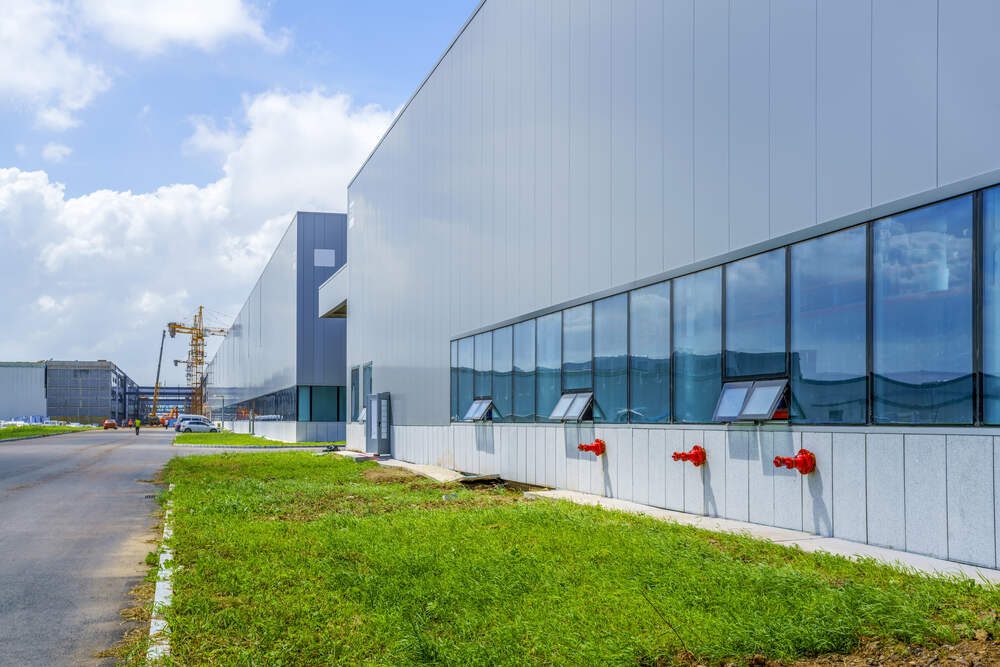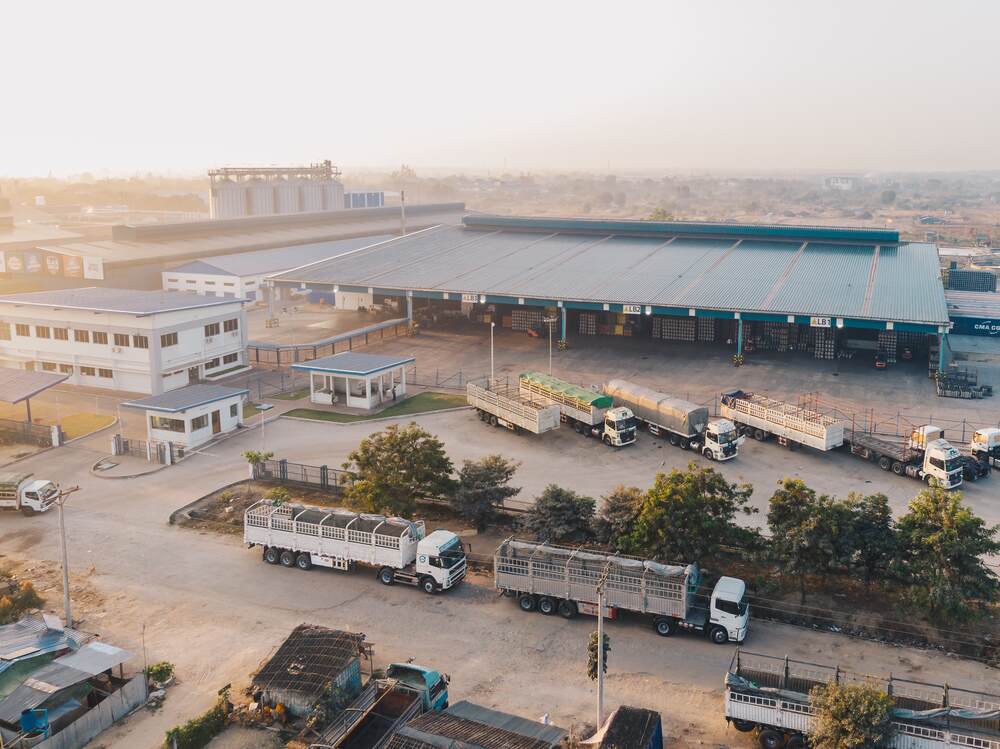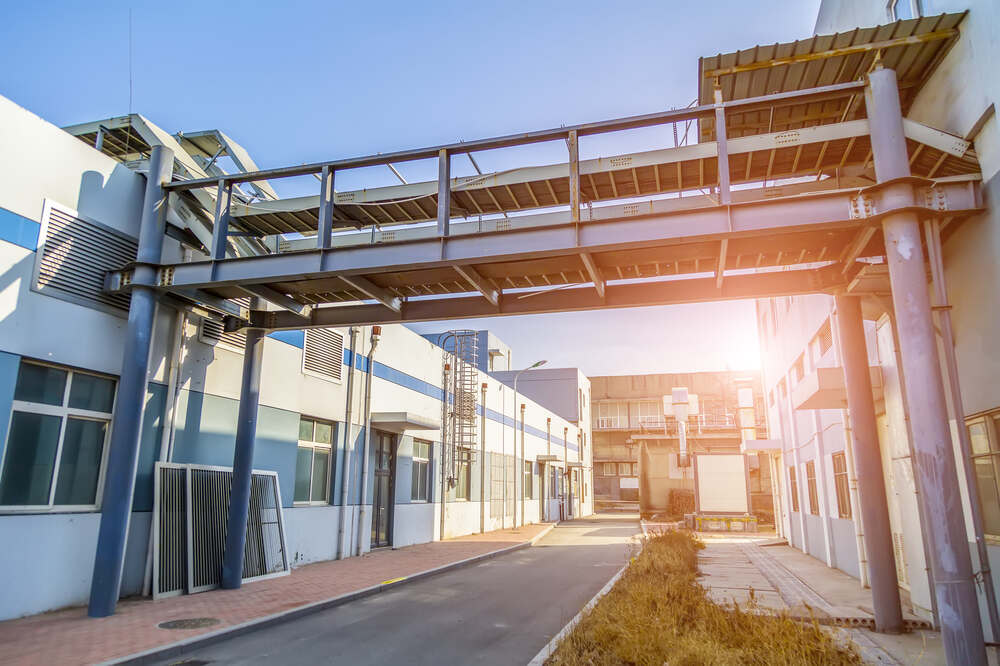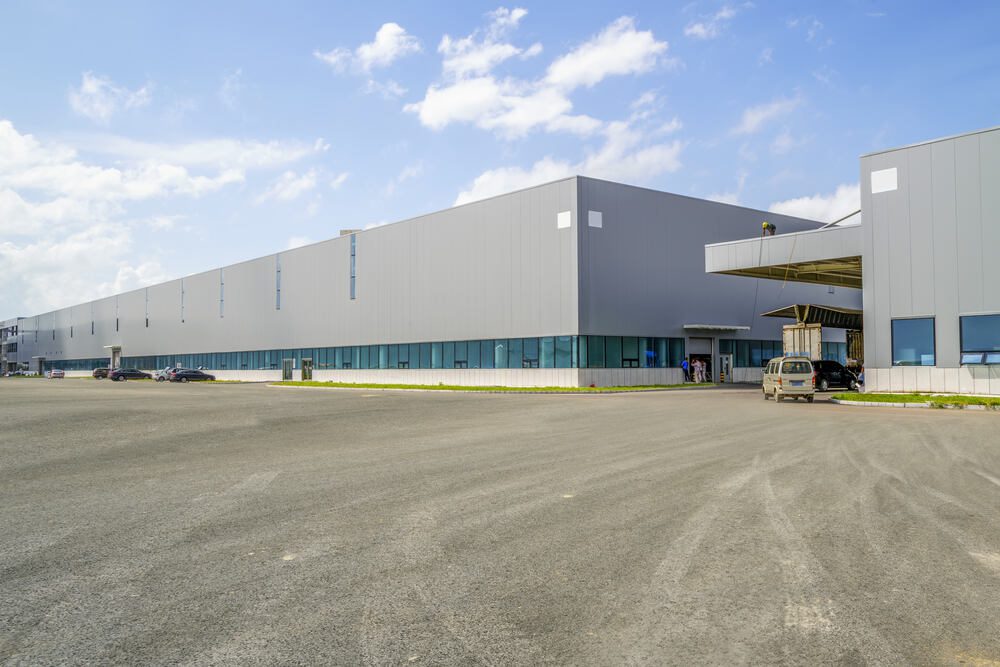SINCE 1988
203-546-7793

Securing the right industrial property for lease is a crucial decision for any business involved in manufacturing, warehousing, logistics, or distribution. The right space can enhance efficiency, streamline operations, and contribute to long-term success. However, several key factors must be considered before signing a lease agreement.
Here are ten essential features to evaluate when looking for an industrial property for lease in Newtown, CT, and how each impacts business operations.
Key Takeaways✔ Proximity to highways, ports, and suppliers reduces transportation costs and improves supply chain efficiency. ✔ Wide driveways, multiple entry points, and ample parking ensure smooth truck movement and prevent congestion. ✔ Square footage and ceiling height must support storage, equipment, and workflow efficiency. ✔ Inspect the foundation, roof, and insulation to avoid costly repairs and ensure long-term durability. ✔ Adequate power, water supply, and sewage systems are essential for uninterrupted industrial operations. ✔ Verify zoning regulations, environmental restrictions, and permitted business activities to prevent legal issues. ✔ Understand lease length, renewal options, and modification allowances to ensure long-term operational adaptability. ✔ Fire suppression systems, surveillance, fencing, and access control are critical for employee and asset protection. ✔ A scalable facility with adjacent land availability supports future business growth without the need for relocation. ✔ Beyond rent, factor in property taxes, maintenance fees, insurance, and potential financial incentives to manage expenses effectively. |

The location of an industrial property for lease plays a vital role in logistics, cost management, and operational success. Choosing a well-placed facility ensures efficient supply chain movement, reduced transportation expenses, and better access to labor and resources.
An industrial business depends on timely deliveries and streamlined distribution. A property’s location should align with its transportation needs.
A strong infrastructure supports smooth operations and minimizes unexpected interruptions. Key elements to evaluate include:
A well-designed industrial property for lease enhances efficiency by ensuring smooth entry and exit for shipments, reducing downtime, and optimizing workflow.
Industrial properties should accommodate trucks of all sizes, from delivery vans to 18-wheelers. Businesses should check for:
A facility lacking proper truck access can lead to:
Ample and secure parking is essential for employees, visitors, and logistics partners. Businesses should assess:
The physical dimensions of an industrial property for lease should align with current and future business operations. Selecting the right size prevents unnecessary costs and operational inefficiencies.
The U.S. warehouse vacancy rate for properties under 100,000 square feet stood at 3.9% in Q4 2024, significantly lower than the overall industrial vacancy rate. This indicates a strong demand for smaller warehouses, making it more challenging for businesses to secure appropriately sized spaces.
Determining the appropriate square footage ensures optimal space utilization. Key considerations include:
Ceiling height is crucial for warehouse operations, manufacturing, and logistics. The right height maximizes storage efficiency and accommodates specialized equipment.

The structural condition of an industrial property for lease directly affects safety, durability, and long-term operational efficiency. Any weaknesses in the foundation, roof, or overall structure can lead to costly repairs, safety hazards, and potential downtime.
A solid structure ensures the longevity of the facility and protects against environmental damage. Before committing to a lease, businesses should inspect:
An industrial property for lease must adhere to local, state, and federal building regulations. Key compliance checks include:
A well-equipped industrial property for lease must support all utility needs, ensuring that production and operations run smoothly without unnecessary downtime.
Power requirements vary depending on the nature of the business. Important factors to consider:
A reliable water supply and waste disposal system are critical for various industries. Businesses should evaluate:
Zoning laws determine whether an industrial property for lease is legally suitable for specific operations. Overlooking zoning restrictions can lead to fines, legal disputes, and forced relocation.
Before signing a lease, businesses must verify:
Certain industrial properties for lease may have environmental limitations that affect business operations. These can include:
The lease agreement for an industrial property for lease should align with a business’s financial goals, operational needs, and future growth plans. A poorly structured lease can lead to unexpected costs and restrictions that limit flexibility.
The length of a lease impacts long-term business stability and financial planning. Companies should evaluate:
Industrial tenants often need to customize a space to meet operational demands. Before signing a lease, businesses should clarify:
A secure and well-equipped industrial property for lease helps protect employees, inventory, and equipment while ensuring compliance with safety regulations.
Industrial properties must have adequate fire prevention and emergency response measures in place. Businesses should confirm:
A well-secured industrial property for lease minimizes the risk of theft, vandalism, and unauthorized access. Businesses should assess:

Choosing an industrial property for lease with growth opportunities prevents the need for costly relocations as business operations expand.
As businesses grow, they may require additional space to accommodate increased production, workforce, or inventory. Key considerations include:
For businesses planning major expansions, adjacent land can provide critical opportunities for:
Understanding the full cost of an industrial property for lease is essential for budgeting. Rent is just one component—additional costs such as utilities, property taxes, insurance, and maintenance fees must also be considered.
While rent growth has slowed, it remains positive at 5% year-over-year, though some markets have experienced rent declines following an extraordinary period of growth. This shift in the market means businesses looking to lease industrial properties may find more negotiable lease terms in some areas, particularly where vacancy rates are higher.
Lease costs go beyond the base rent. Businesses should factor in:
Some landlords offer cost-saving benefits to attract tenants. Businesses should inquire about:
Finding the right industrial property for lease in Newtown, CT, can be challenging, especially for businesses unfamiliar with the real estate market. A commercial broker acts as an intermediary, ensuring that tenants secure the best possible property under the most favorable terms.
Many of the best industrial properties for lease are not listed on public real estate platforms. Instead, they are part of a network of off-market listings that only industry professionals have access to. Working with a broker ensures that businesses:
Lease agreements for industrial properties can be complex, with various financial and legal terms that impact long-term costs. A broker provides negotiation leverage, ensuring businesses secure favorable lease terms. They help:
A commercial broker has extensive knowledge of market trends, zoning laws, and industrial real estate demand. Their insights help businesses:
Searching for an industrial property for lease is time-consuming, requiring market research, site visits, and negotiations. A broker:
Industrial leases typically fall into three categories: gross lease, net lease, and modified gross lease. A gross lease includes all property-related expenses in the rent, while a net lease requires the tenant to cover additional costs like taxes, insurance, or maintenance. A modified gross lease is a hybrid model where the tenant and landlord share certain expenses, making it a flexible option for many businesses.
Choosing the right lease length depends on business stability, growth projections, and industry trends. A short-term lease offers flexibility for companies expecting changes, while a long-term lease provides cost predictability and stability. Businesses should assess their expansion plans and negotiate renewal options to avoid disruptions.
Lease renewals require reviewing the agreement for renewal clauses, including notice periods and any potential rent increases. Tenants should start discussions with the landlord well in advance to negotiate favorable terms and avoid market rate hikes. Understanding current lease conditions and preparing for renegotiation can help businesses secure better agreements.
Some regions provide tax incentives or credits for businesses leasing industrial properties, especially in designated economic development zones. These incentives can include tax breaks, grants, or deductions on property-related expenses, reducing overall leasing costs. Consulting with local tax professionals or economic development agencies can help businesses identify and apply for available benefits.
Conducting an Environmental Site Assessment (ESA) helps identify potential contamination or compliance issues. This assessment ensures the property meets environmental regulations and prevents unexpected remediation costs. Businesses should work with environmental consultants to review soil, water, and air quality before finalizing a lease.
Leasing the right industrial property is a crucial decision that impacts your business operations, efficiency, and long-term growth. Whether you need a warehouse, distribution center, or manufacturing space, having expert guidance ensures you secure the best deal. Tower Realty Corp specializes in industrial property for lease in Newtown, CT, helping businesses find locations that match their needs.
Contact Tower Realty Corp today to explore available properties in Newtown, CT, and secure the perfect space for your business.